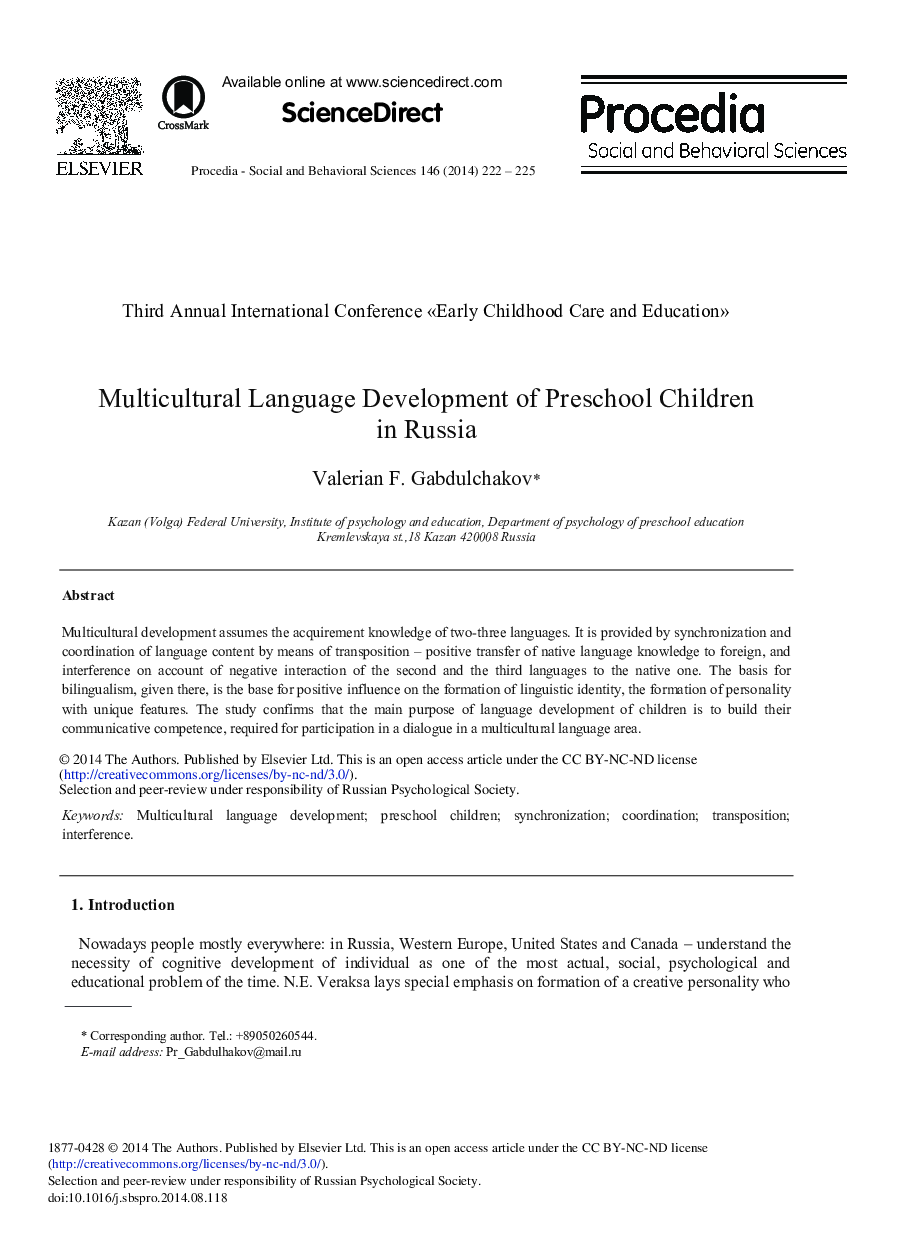| Article ID | Journal | Published Year | Pages | File Type |
|---|---|---|---|---|
| 1112685 | Procedia - Social and Behavioral Sciences | 2014 | 4 Pages |
Abstract
Multicultural development assumes the acquirement knowledge of two-three languages. It is provided by synchronization and coordination of language content by means of transposition – positive transfer of native language knowledge to foreign, and interference on account of negative interaction of the second and the third languages to the native one. The basis for bilingualism, given there, is the base for positive influence on the formation of linguistic identity, the formation of personality with unique features. The study confirms that the main purpose of language development of children is to build their communicative competence, required for participation in a dialogue in a multicultural language area.
Related Topics
Social Sciences and Humanities
Arts and Humanities
Arts and Humanities (General)
